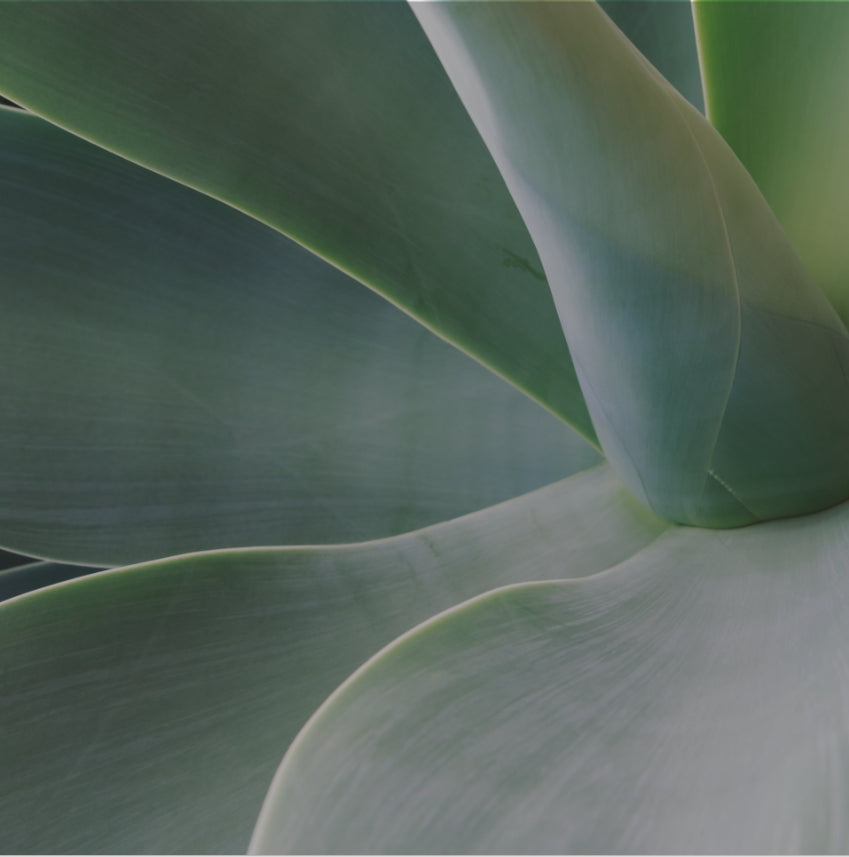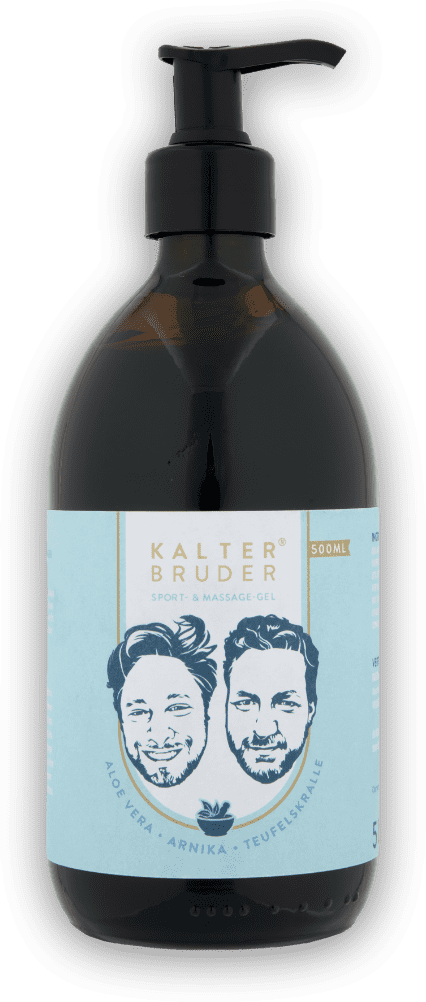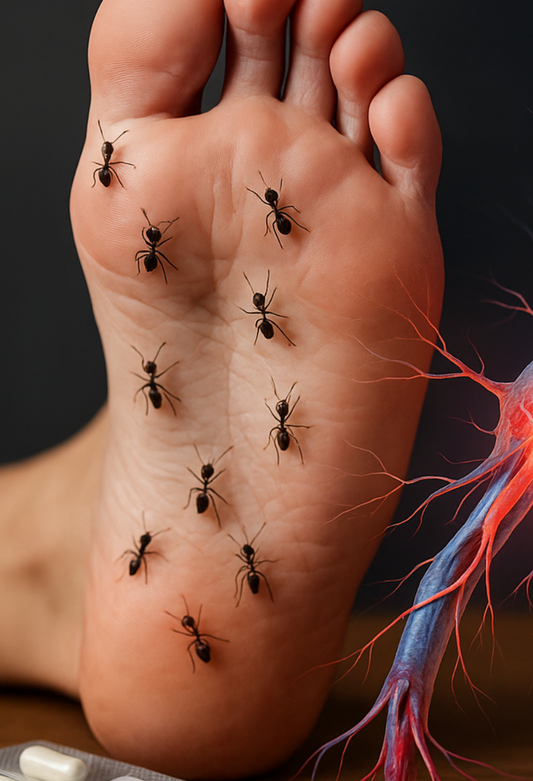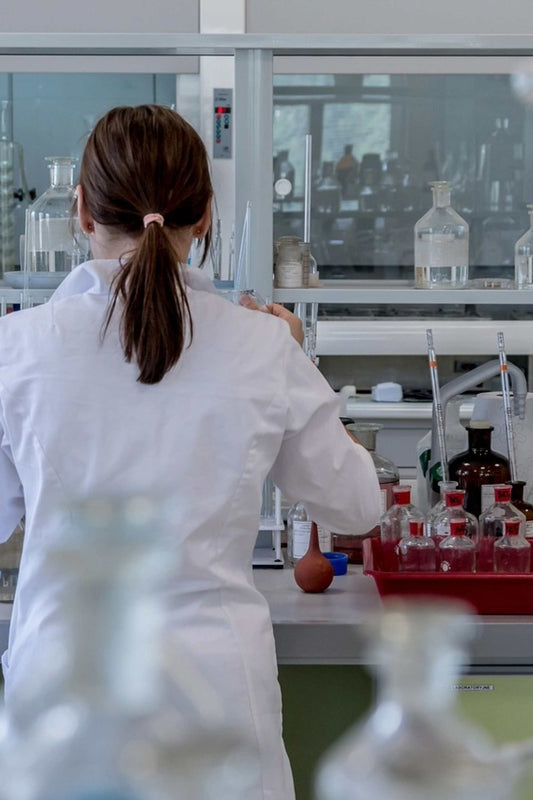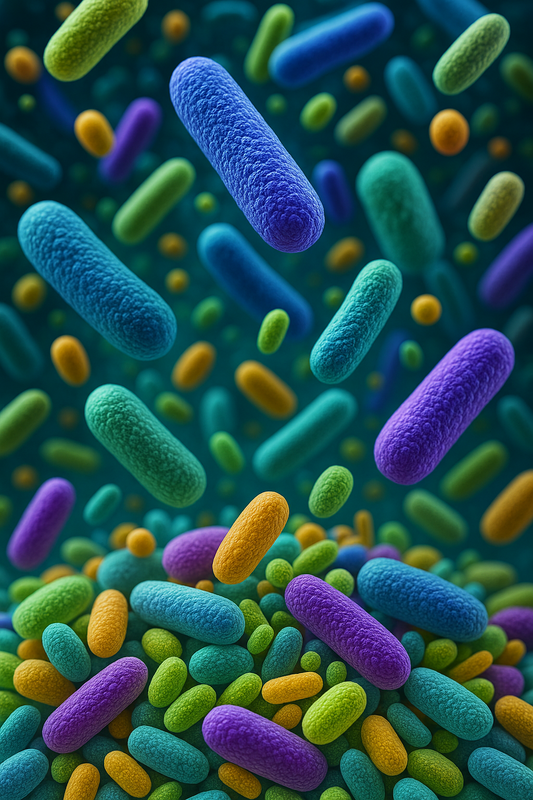Astaxanthin: Nature's Super(Hero) Antioxidant
Astaxanthin is one of the most powerful antioxidants nature has to offer. It is up to 6000 times more potent than vitamin C and is often referred to as the "king of carotenoids." Unlike many other antioxidants, astaxanthin does not become a pro-oxidant, meaning it does not create harmful free radicals after it has exerted its protective effects. This makes astaxanthin a unique and valuable ingredient for your health. In addition to its antioxidant properties, astaxanthin also has anti-inflammatory, immune-boosting and cell-protective effects, making it an important nutrient for many aspects of your health.
Astaxanthin is found primarily in microalgae, which protect themselves under stress conditions. These algae serve as a food source for many marine creatures, which are then given their red or pink coloring. In addition to its antioxidant strength, astaxanthin supports the immune system, protects the cardiovascular system, and promotes general well-being. It is often used as a dietary supplement to promote long-term health. In this article, you will learn why astaxanthin is so special, what health benefits it offers, and how you can best integrate it into your everyday life.
What is Astaxanthin? The red dye with great effect
Astaxanthin belongs to the carotenoid family and is a fat-soluble pigment responsible for the striking red color of salmon, crabs and even flamingos. The main source is microalgae such as Haematococcus pluvialis , which produce astaxanthin to protect themselves when environmental conditions are unfavorable. This gives astaxanthin its amazing antioxidant capacity, making it a valuable ingredient in both diets and supplements.
Since astaxanthin is fat-soluble, it is best to take it in combination with healthy fats to significantly increase its bioavailability. This means that astaxanthin can be optimally absorbed by the body when consumed with foods such as avocado, olive oil or fish. In addition, astaxanthin remains stable under a wide range of conditions, which ensures reliable effects.
Health Benefits: Why Your Body Will Love Astaxanthin
Astaxanthin offers numerous health benefits that make it an important part of a healthy lifestyle. Its antioxidant effect helps neutralize free radicals and prevent cell damage. Studies show that astaxanthin can reduce the oxidative stress associated with the aging process and various chronic diseases. Astaxanthin protects your cells and, as an anti-aging agent, can help slow down biological aging.
In addition, astaxanthin has anti-inflammatory properties that can help you relieve joint pain. A 2018 study from Kyoto University showed that astaxanthin can reduce inflammatory markers in the body. This anti-inflammatory effect helps fight chronic inflammation, which is often the cause of many diseases, including cardiovascular disease, diabetes, and even certain types of cancer. Astaxanthin is particularly interesting for athletes: it promotes muscle function, increases athletic performance, and supports muscle recovery after intense training sessions.
Astaxanthin also has a positive effect on your immune system. Studies show that it can increase the number and activity of immune cells, which strengthens your defenses against infections and diseases. Astaxanthin can protect the cardiovascular system by improving blood lipid levels, lowering blood pressure and promoting the flexibility of blood vessels. These factors help reduce the risk of heart attacks and strokes. In addition, astaxanthin has been shown to improve blood flow to the eye and can reduce the risk of age-related eye diseases such as macular degeneration.
Benefits for the skin: protection from inside and out
Astaxanthin not only works on your internal organs, but also on your skin. It provides natural protection from UV rays and can therefore help prevent sun damage. Clinical studies have found that astaxanthin can improve skin elasticity and moisture when taken orally or applied topically. It also helps reduce wrinkles and protects the skin from harmful blue light emitted by screens. This protection from oxidative stress can help reduce the visible signs of aging.
The antioxidant properties of astaxanthin help protect your skin from within by strengthening your cells and preventing damage caused by environmental factors such as UV radiation and air pollution. In addition, astaxanthin supports collagen production, which ensures firm and elastic skin. Collagen is crucial for maintaining the structure and firmness of the skin, and astaxanthin can help prevent the breakdown of this important protein. This means that astaxanthin not only contributes to skin care, but also to long-term skin health.
intake recommendations and dosage
If you are unable to get enough astaxanthin from your diet, supplementation is an option. Microalgae-based supplements are widely available and provide a concentrated dose of the antioxidant. The recommended daily intake of astaxanthin is between 4 and 12 mg, depending on individual needs and health goals. Since astaxanthin is fat-soluble, it should be taken with a meal that contains healthy fats to improve absorption. There are also combination preparations that contain astaxanthin with omega-3 fatty acids or other carotenoids to achieve a synergistic effect.
Another important point is continuous use. To enjoy the full health benefits of astaxanthin, you should take it over a longer period of time, as it needs time to accumulate in your body and fully develop its protective effects. People suffering from chronic conditions or recovering from intense physical activity may benefit from a higher dosage, while a lower daily dose may be sufficient for general health maintenance.
Natural Sources of Astaxanthin: Where is the Power of Nature?
Astaxanthin is found in a variety of natural sources and is easier to incorporate into your diet than you might think. The microalgae Haematococcus pluvialis is the richest source of astaxanthin and is often grown specifically to produce this valuable antioxidant. Seafood such as salmon, krill and shrimp also contain astaxanthin, with wild salmon having up to four times more astaxanthin than farmed salmon because its diet is richer in natural sources of astaxanthin. Krill oil is another excellent source of astaxanthin and also contains valuable omega-3 fatty acids that promote heart health and support brain function. The daily requirement of astaxanthin is measured in milligrams (mg) and ranges from 4 to 12 mg depending on individual needs. In the table below you will find the average astaxanthin content of each food in milligrams per 100 grams and the percentage of the recommended daily requirement.
In addition to marine sources, there are also other, lesser-known sources of astaxanthin. Eggs from chickens fed with astaxanthin-rich feed, such as special organic eggs or eggs from certain chicken farms, can also contain a certain amount of this carotenoid. Such eggs are often available in organic shops, farm shops or special online shops. These eggs offer an interesting way to integrate astaxanthin into the daily diet, especially for people who do not consume fish.
Table of natural astaxanthin sources
| Groceries | Astaxanthin content (mg/100g) | Percent of daily requirement (at 4-12 mg/day) |
|---|---|---|
| Haematococcus pluvialis (algae) | 300-400 | 2500-10000% |
| wild salmon | 3-5 | 25-125% |
| krill oil | 50-80 | 417-2000% |
| shrimp | 1-3 | 8-75% |
| Eggs (special types) | 0.3-0.5 | 2.5-12.5% |
Astaxanthin from microalgae is particularly bioavailable, which is why dietary supplements are often based on this source. It is important to ensure that astaxanthin is consumed as naturally as possible and in combination with healthy fats to achieve the optimal effect. You should also choose products that have been obtained without the use of chemicals or harmful solvents to ensure quality and purity.
According to the table, the question arises whether it is problematic to consume significantly more than the recommended daily requirement of astaxanthin. Since astaxanthin is a natural carotenoid, it is considered very safe, even in higher doses. Studies have shown that even amounts far above the recommended daily requirement are generally well tolerated and do not cause toxic effects. Nevertheless, you should be careful not to overdo the dosage, especially when taking dietary supplements, in order to avoid possible side effects such as gastrointestinal problems. For most people, however, it is not a problem to consume higher amounts through diet, as the body can process excess astaxanthin well.
Sustainability and Quality: Why Origin Matters
When choosing astaxanthin, the origin is of great importance. The extraction of astaxanthin from microalgae is considered particularly sustainable because they can be grown in closed systems, which minimizes the impact on the environment. Microalgae require little space and water to grow, making them an environmentally friendly source of astaxanthin. Krill oil is also a popular source of astaxanthin, but care should be taken to ensure that it comes from sustainable fishing in order to protect the ecosystem of the Antarctic Ocean. Quality seals such as "organic" or "sustainable fishing" provide guidance here.
In addition, research is increasingly being carried out into innovative methods for extracting astaxanthin in order to further minimize environmental impact. This includes the cultivation of microalgae in closed systems that require less water and energy. Sustainability is particularly important because a high demand for astaxanthin should not come at the expense of the environment. Consumers should therefore pay attention to appropriate certifications that guarantee that the product was produced under environmentally friendly conditions. The quality of the products also plays a major role: Astaxanthin should be as pure and free of contaminants as possible in order to achieve the best possible effect.
Recipe ideas with astaxanthin-rich foods: healthy and delicious
Astaxanthin can be easily integrated into everyday life - whether by eating wild salmon, shrimp or through creative dishes with algae. Here are some recipe ideas:
-
Grilled Wild Salmon with Herbs : A simple recipe with fresh herbs, lemon and olive oil that is rich in astaxanthin and healthy omega-3 fatty acids. This dish is not only delicious, but also supports heart health and provides the body with essential nutrients.
-
Shrimp Salad with Avocado : A light salad made with shrimp, avocado, tomatoes and lime dressing - perfect for hot summer days. The shrimp provide astaxanthin, while the avocado contains healthy fats that improve the absorption of the antioxidant.
-
Seaweed Pesto with Whole Wheat Pasta : A delicious vegetarian recipe that combines microalgae with nuts, garlic and olive oil to create a hearty pesto. This pesto is not only rich in astaxanthin, but also a good source of protein and healthy fats.
-
Krill Oil Smoothie : A smoothie made with berries, banana, oat milk and a dash of krill oil. This smoothie is an easy way to incorporate astaxanthin into your daily diet while providing plenty of vitamins and minerals.
Possible side effects and interactions
Astaxanthin is generally considered safe and well tolerated by most people. However, in rare cases, gastrointestinal discomfort may occur, especially with high doses. Although no serious interactions are known, if you take medication regularly, you should consult your doctor before taking astaxanthin supplements. People who take blood-thinning medication should be particularly cautious, as astaxanthin may affect blood clotting.
If you have a seafood allergy, you should be cautious when taking krill or fish-based astaxanthin supplements and consider using plant-based alternatives if necessary.
Conclusion: Astaxanthin – Small molecules with big effects
Astaxanthin is a true all-rounder: It protects your cells from oxidative stress, supports skin health, promotes athletic performance and strengthens the immune system. Whether as part of your diet or in the form of a dietary supplement - astaxanthin offers you numerous health benefits that make it worthwhile to integrate it into your everyday life. Consciously choose foods that are rich in astaxanthin and benefit from the concentrated power of this natural super antioxidant.
Thanks to its versatile effects, astaxanthin is a valuable part of a healthy lifestyle. It protects the skin, strengthens the immune system and supports cardiovascular health and muscle function. Whether you take it through natural foods or as a supplement, astaxanthin offers protection and support on many levels and helps promote a healthy and active life.




